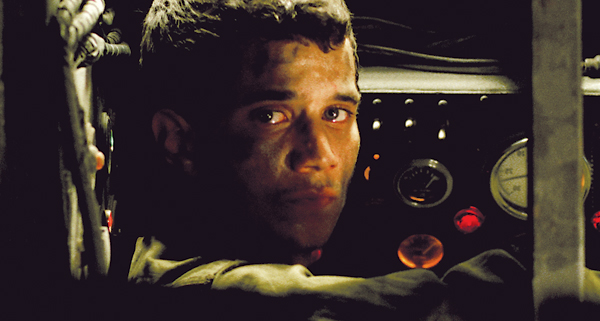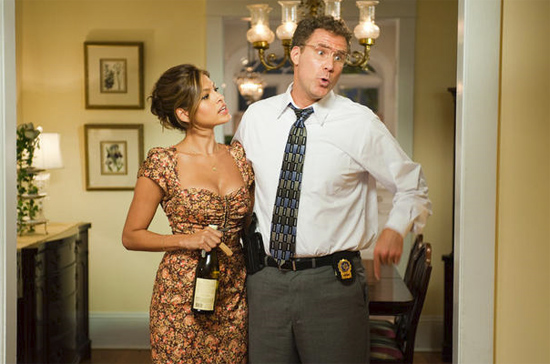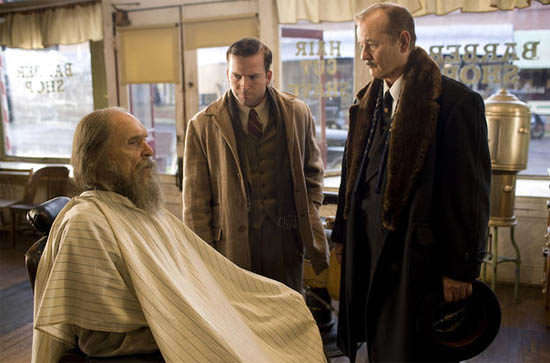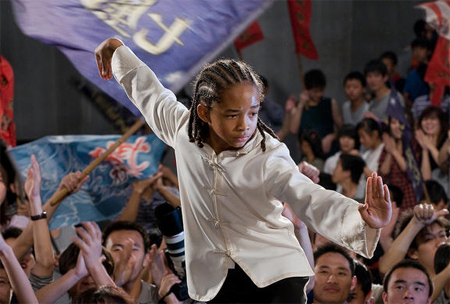A few weeks ago, Patton Oswalt wrote an essay for Wired in which he suggested that the time had come for geek culture to meet its maker. Oswalt bemoaned “Boba Fett’s helmet emblazoned on sleeveless T-shirts worn by gym douches hefting dumbbells” and the sudden hip qualities of outsider geek culture, which had previously celebrated oddball nuggets hidden in plain sight, those precious tidbits misunderstood by all except a loyal few. The time had come, Oswalt wrote, to “make the present pop culture suck, at least for a little while.”
I’m not sure if I entirely agree with Oswalt’s thesis. The idea that culture has to kill itself, rather than adopt qualities that are playfully defiant, is something of a capitulation to the free market system. But that essay made the rounds for a few very good reasons. Oswalt was really writing about the ubiquity of everything. In antediluvian pre-Internet times, that alternative ending to Army of Darkness was once only available on a Japanese laserdisc. Now you can find it on YouTube. That obscure early Yello mix? Before CD burners, you tape traded. But now it’s on YouTube too. In fact, why not just download Yello’s entire discography from a torrent?
This omnipresence allows culture to thrive. And this is the reality from which we now operate. These developments may concern you if you feel a need to remain an outsider or if you wish to identify yourself by the obscurity of your tastes. As we have seen from some of the unintentionally hilarious anti-piracy videos making the rounds, these are market concerns rather than cultural concerns. And if you’re thinking about whether you’re inside or outside, chances are that you’re already part of the problem. Such capitalistic exigencies are now actively interfering with the advancement of culture. To offer one absurd example, we now live in a world in which Peter Serafinowicz, a hilarious comedian who deserves a bigger break and who may or may not be the Peter Sellers of our time, is now forced to steal his own movies in order to appear and perform in new material.
The ideal cultural state is simply liking what you like, without hip, square, geek, or cool dictating your existence. Labels aren’t how culture evolves. It isn’t how humans live and innovate.
Vile mainstream forces will always find ways to pluck, profit, and destroy original voices. The great irony is that they’re doing all this as their big box stores collapse and mass culture as a whole is fragmenting. Gone are the days where you’d find a Bloom County strip sitting incongruously next to Family Circus or a comedy program as wonderful as Monty Python’s Flying Circus getting aired on the BBC as a fluke. The people sitting atop the coffers aren’t going to let that happen again. Because for them, it’s about the short-term, the bottom line. Play by the rules. And just maybe, maybe you might have your personal project once you ensure that the investors buy the minimum six McMansions. Of course, by then, you’ll be a soulless burnout.
So the problem with variegated subcultures, whether geek or otherwise, is actually much worse than what Oswalt suggests. Much as we don’t want to talk about how the richest 1% horde a vast majority of the wealth and are willing to profit off of your inevitable bankruptcies and foreclosures, we don’t want to talk about the way New Geek culture has been co-opted by money and power.
Geek culture before the Internet was about people who genuinely liked Dungeons & Dragons, comic books, Skinny Puppy, and other “fringe” items, but who weren’t recognized by the mainstream for their tastes. Acts that operated in such conditions were a bit like small businesses. They couldn’t always make payroll, but they operated in the spirit of truth and passion. We see this today in independent bookstores that serve the community.
Unfortunately, the men with the money discovered (much as Werner Erhard and self-help gurus exploited the emotionally sensitive back in the 1970s) that they could profit off of the geek demographic and exploit them with Bernaysian glee. And you’ll now find these profit-oriented types — who like money but don’t really like culture — attending ComicCon and E3 to poach talent and control geek spin (or hiring people to do so; the E3 Booth Babes are among the most vile and misogynist approaches). There is now a great effort to woo anyone who is perceived as a tastemaker. Someone who has a blog or a prominent Twitter following.
This is hardly a prototypical move. Back in 1993, OK Soda was a desperate effort by the Coca-Cola Company to court the Generation X demographic. Coca-Cola hired alternative cartoonists. As Charles Burns recently told Martyn Pedler in an interview: “I kind of know what they were after – but I don’t know what they were thinking. They were going for this kind of ironic humor, for the 20-something audience. Instead of having that iconic Coca-Cola logo, the can would be different every few months or so.”
But the results backfired dramatically. Nevertheless, the corporate forces become self-aware and more ambitious after that hilarious little episode.
As the Internet began its great leap forward in the mid-1990s, marketing people located “geeks” who were mostly illiterate with an online audience. Even during these We’re Not Really Living in a Recession times, movie people fly unethical hacks like Harry Knowles off to junkets. And they invade legitimate geek space on the Internet — much of it generated in an initial burst of genuine geekdom until the inevitable question of money spoils everything.
Most of these efforts to network are an extension of advertising and crass PR. B-list celebrities reply on Twitter and “friendship” becomes just another word for something left to cash in on. And, hey, while you’re at it, why not collect private data and track their tastes so that we can refine the profit machine? I mean, the fucking fools are giving it to you!
The New Geeks who are part of this despicable capitalistic food chain often never stop to think that they may just be getting used. Or if they do know that they are getting used, they welcome being in close proximity to people they revere. And that collective dynamic of geeks quietly getting together to find culture that others can’t understand becomes drastically altered. For like anybody suddenly handed the keys to the executive washroom with little explanation, they want to use this power. They don’t want to sell out; they want to buy in. And it’s often for so little.
What these New Geeks never stop to consider is that maybe their legitimate tastes might actually be used to fuck with the money men or to stand for some corresponding set of virtues that don’t involve this geek groupthink. Their previous cultural tastes, now derivative courtesy of the natural expiration dates that come with every cultural cycle, suddenly become part of a new mainstream homogeneity that exists perhaps most predominantly in endless comic book movies. Rehash after rehash after rehash.
Take Matthew Vaughn, a sleazy filmmaker who worked tremendously hard to bamboozle undiscerning movers and shakers within the online geek cluster for Kick-Ass, a self-financed movie that needed to dictate how the audience had to feel. Blast The Dickies’s “Banana Splits” when Hit-Girl begins killing people so that you can understand with the “La La Las” that it’s meant to be ironic. Have Nicolas Cage rehash his backstory in a sarcastic tone. Don’t give the audience anything close to an ambiguous or an organic moment. Because we’re trying to make a shitload of money here.
Lest I be accused by the fawning fanboys as someone who is out-of-touch with mass entertainment, compare Vaughn’s approach with Michael Davis’s marvelous action movie, Shoot ‘Em Up. Shoot ‘Em Up is tremendously enjoyable. It wallows in corny puns, a wonderfully over-the-top gunfight that takes place in coitus, and the gloriously flamboyant moment of Clive Owen spanking a mother in retaliation. These moments don’t dictate; wild associations are thrown out for the audience to interpret and enjoy. Because of this, Shoot ‘Em Up is, unlike Kick-Ass, legitimate low-class art, and I love every damn minute of it.
I won’t go as far as Roger Ebert and claim that Kick-Ass was “morally reprehensible.” That’s a reactionary stance. The fact of the matter is that Kick-Ass bored the fuck out of me. It was no different from some overwrought movie made by cokeheads. Vaughn’s film was so motivated by appearing to be clever that it lacked the courage to inhabit a nascent spirit or pursue the truly bugfuck. It was a film that preferred to pander to its audience rather than trust its subconscious. Shoot ‘Em Up, by contrast, featured ridiculous gunfights that were inspired by Rube Goldberg-like invention and simply trusted its gut. A protagonist who subsists off of carrots? Check. Paul Giamatti playing an Elmer Fudd-like antagonist who takes calls from his wife? Check. Shoot ‘Em Up‘s willingness to pursue such wild ideas is, I suspect, one of the reasons it will be remembered as fondly as John Carpenter’s Big Trouble in Little China is today. And the difference between Shoot ‘Em Up and Kick-Ass fleshes out Oswalt’s thesis. The former is a movie made from sheer passion that is hidden in plain sight; the latter is a movie that wishes to calculate its geek demographic.
The Green Hornet is your typical New Geek superhero movie. This is a vastly vile film written by joyless twentysomething cretins. It contains few pleasures. It is deeply misogynistic and ageist in the way that it ridicules a 36-year-old woman played by Cameron Diaz for entering the job market in her “twilight.” It is also astonishingly revisionist in the way that it has altered the 28-year-old Seth Rogen, a naturally fat man who has slimmed himself down for the role. In manipulating Rogen’s innate physicality, the filmmakers have made him look a good decade older than his years. It doesn’t help that Rogen has the thespic range of a thimble. Yet it’s hard to feel much sympathy for this starving baboon. For he was one of the two hacks who wrote this piece of shit.
The Green Hornet is a movie upholding the capitalist con. The 3-D was clearly decided upon at the last minute. Aside from a bottlecap flicked into the air by Kato — a cap looking as chintzy as some penny squished through a souvenir machine — there is very little in this movie that couldn’t be confined to 2-D. It doesn’t help that Britt Reid, the man who becomes the Green Hornet, is an incredibly obnoxious and tremendously stupid character. I’m all for assholes on film. Vince Vaughn (the good Vaughn to Matthew’s evil one) has eked out an interesting career playing assholes. But if the asshole doesn’t have dimension (such as Kevin Spacey’s Buddy Ackerman in Swimming with Sharks) or if you don’t make him a funny side character (such as J.K. Simmons’s J. Jonah Jameson in the Spider-Man movies; just enough screen time to make an impact), then there’s no purpose in serving up the asshole on screen.
You know that you have a problematic movie on your hands when the most interesting scenes don’t involve the title character. Take a moment featuring an unbilled James Franco playing an emerging crystal-dealing nightclub owner trash-talking Christoph Waltz’s Chudnofsky, the movie’s main villain. Chudonfsky says to the nighclub owner, “I’ve wanted my entire life to achieve the goal to be in charge of all the crime in Los Angeles.” The nightclub owner replies that the crime world now operates upon charisma, not hard work. We see how one line announces Chudnofsky’s motivation. And Franco’s response establishes an interesting thematic question for the movie to pursue. Will Britt Reid be able to eke out a crimefighting existence through charisma or hard work? Will the movie invert or demolish this dichotomy?
The problem, of course, is that Reid has neither quality. He’s merely an obnoxious buffoon with money who has to reiterate what’s going on to the audience every time there’s an action scene (“Hey, they’re really organized,” “This is cool,” “Whoa,” and other Mathew Vaughn-like ADR dictating to the New Geek audience what is clearly happening on the screen before them; the filmmakers clearly view the audience with great contempt). So the movie immediately becomes pointless. Yes, Reid has his manservant Kato (Jay Chou) to help him out. Kato makes a coffee with a colorful swirl pattern on the top, designs cool vehicles equipped with puncturing tires and machine guns, and knows marital arts. And when Reid becomes The Green Hornet, it is Kato who does all the work. The movie is too incompetent to establish an interesting conflict between Reid and Kato. For example, if Kato is so smart and Reid is cockblocking Kato’s efforts to woo Lenore Case (the female doormat I mentioned above played by Cameron Diaz), wouldn’t the film be more interesting if Kato began exploiting Reid by getting him to do his bidding? If you’re a smart Asian man in the 21st century, there’s no real incentive to be a white boy’s bitch unless you’re getting paid or he’s getting played.
But I’ve only been discussing the crude formulaic problems. Let us be clear. Seth Rogen is an avaricious man no different from a middle-aged investment banker. He only wants your money. The Green Hornet is Seth Rogen’s subprime loan. Read the goddam agreement. He has even persuaded the great Michel Gondry to sell out. Gondry may offer Kato-Vision, but it’s hardly worth the effort. Frankly, it’s astonishing that a man who was smart enough to collaborate with Charlie Kaufman (twice!) would settle for tenth-rate material.
What Rogen and co-writer Evan Goldberg have done is take an interesting character that wowed audiences on the radio (an audio collection of the original program is available here to make your comparisons) — something fun and magical that was “hidden in plain sight” — and turned it into a lifeless and derivative movie very much designed for the New Geeks. Already, the New Geeks have scarfed down The Green Hornet like starving dogs burrowing their vanquished muzzles into open cans of Alpo. “It was charming, very funny, and worthy of repeated viewings,” writes The Beat in an uncritical, sycophantic, and embargo-breaking review that reads like someone at PW was given a big bag of cash. The New Geek hacks at Cinema Blend offer “5 Reasons You Should Be Excited About The Green Hornet,” as if there couldn’t possibly be a single reason to reject the hype.
If mainstream audiences reject The Green Hornet this weekend (as they did last summer with the more distinctive and less compromising Scott Pilgrim vs. the World), then the New Geek influence may at long last walk the death march. About fucking time. No self-respecting geek of any stripe has any business aligning herself with a sexist, racist, and patriarchal set of values. Seth Rogen is not the geek’s friend. He is a fleeting figure and slobby sellout to be thoroughly rejected. He is a loathsome “talent” hiding in plain sight.
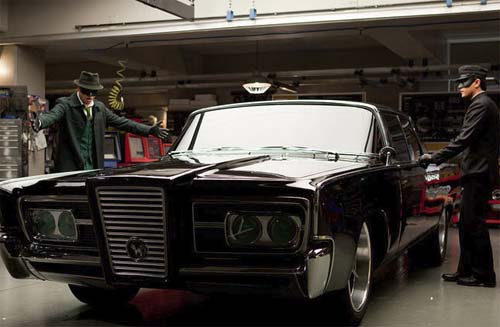

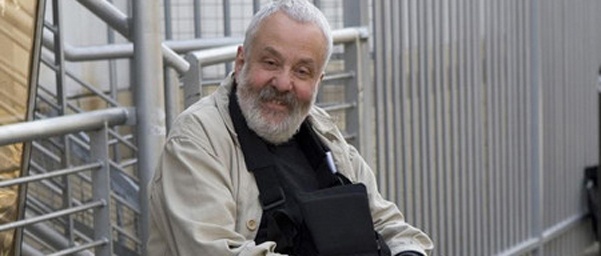
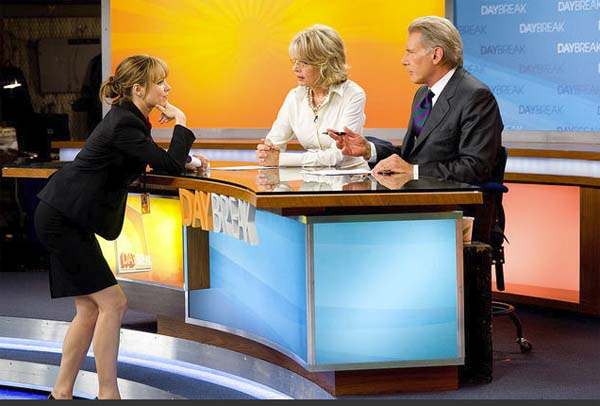

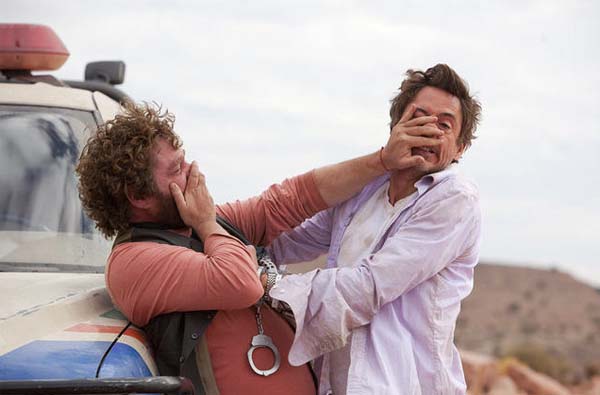

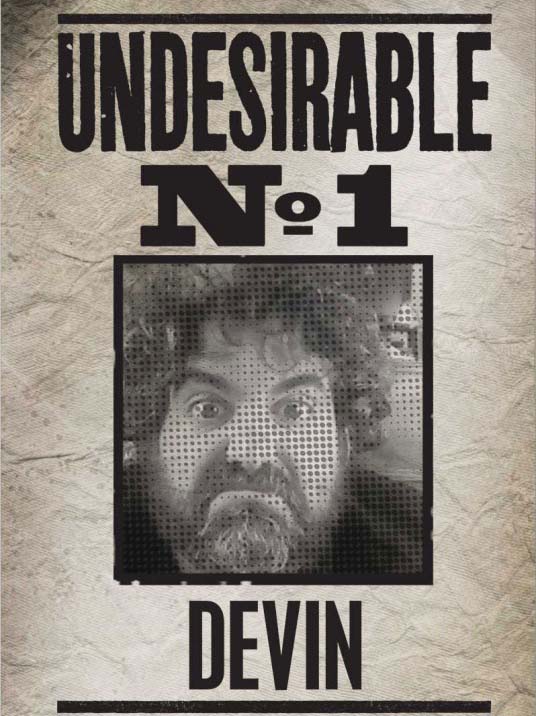

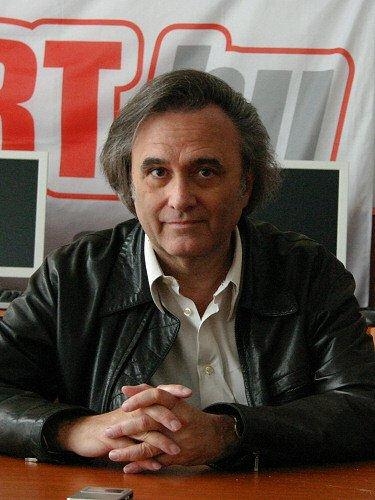

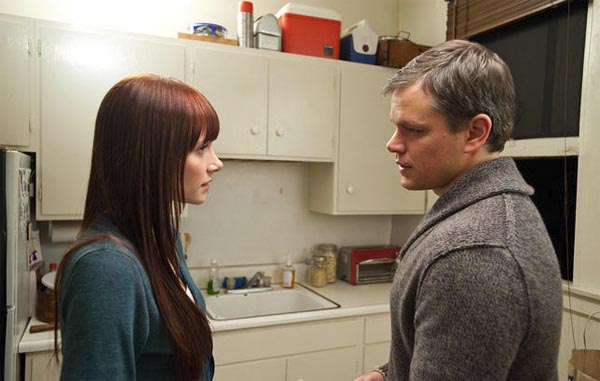

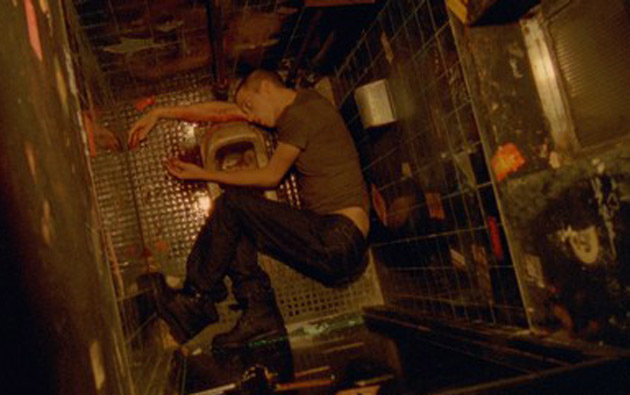

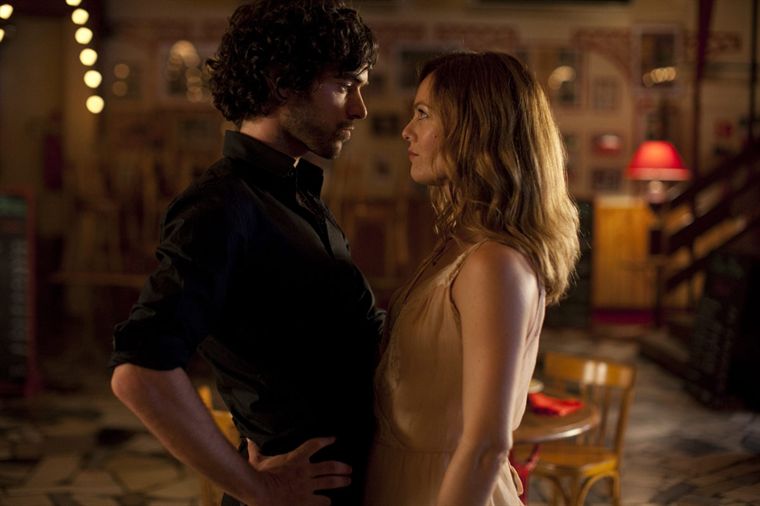


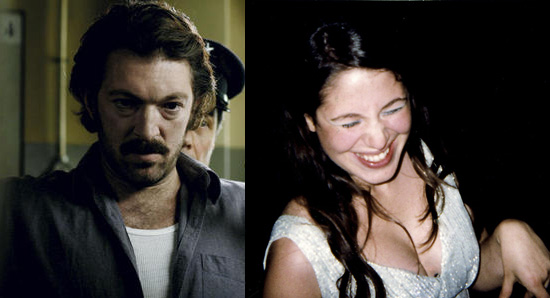
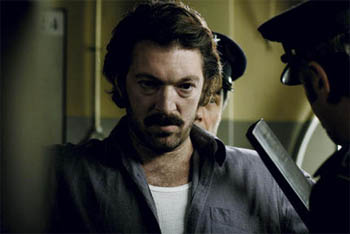 Correspodnent: Does movement offer a more creative place to establish a character? More so than the backstory, research, or anything?
Correspodnent: Does movement offer a more creative place to establish a character? More so than the backstory, research, or anything? Correspondent: You note of [your future husband] Ben that, as you watched him calmly rub soap into his hands by the communal sink, you realized that you had known all along that you would see him again. I’m wondering what it is about hand hygiene that serves as your personal madeleine.
Correspondent: You note of [your future husband] Ben that, as you watched him calmly rub soap into his hands by the communal sink, you realized that you had known all along that you would see him again. I’m wondering what it is about hand hygiene that serves as your personal madeleine.